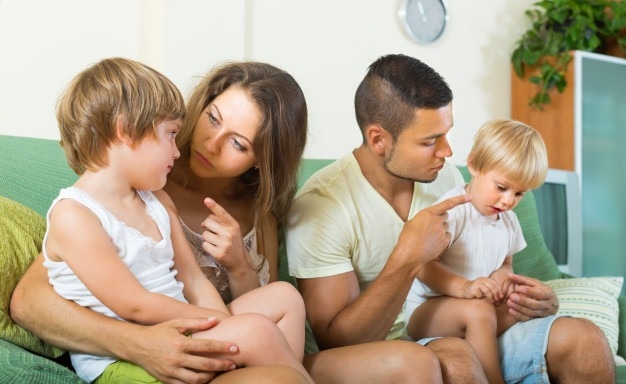
6 Ways How Comparison Is Destroying Your Child
26 Apr 2018 | 4 min Read
Shreiya
Author | 32 Articles
Mark Twain once said “Comparison is the thief of Joy.” While at his time, he might have meant it more for adults who compared themselves but today, I think it is majorly for parents. With the increasing competitive landscape, many well-meaning parents fall into the trap of comparing their children with others. It saddens me to a great extend when I see parents comparing notes of their children’s performance. Be it sports or academics. Why do we have to compare our children? I understand some comparison stems out of worry and anxiety. When everyone around you is boasting about how much their child knows, even the saner parents get anxious and wonder if their child is lagging behind. And what if the child is really lagging behind? What if the child is not so good at what the world assumes imperative? Will that change the love a parent has for her child? I don’t think so. Nothing in this world can change my love for my child and I am certain it is true for every parent. Since now we have established this fact, let us look at other reasons why comparison is no good and in fact thief of joy.
1. Comparison is Counterproductive: We all know how we feel when we are constantly compared. Children are gentle souls and for them their parents are their world. So when a parent compares them, it hurts them more than it would hurt an adult. This limits their ability to learn and improve.
2. It breeds Self-doubt: All children are special and gifted. But when they are compared against their peers, they start doubting their abilities and inferiority complex takes root. They start wondering if they are really capable of doing things. Albert Einstein said and I quote “Everybody is a genius. But if you judge a fish by its ability to climb a tree, it will live its whole life believing it is stupid.”
Remember, intelligence is vector not scalar and can be nurtured.
3. Cultivates Jealousy: If we keep comparing a child with a better performing sibling or a peer, we may end up planting the seeds of jealousy. This would in turn damage the relationship the children share with each other. Jealousy often turns into hatred and aggression, neither of which is a positive, happiness inducing emotion.
4. Nurtures Negativity: A child, who is not praised for what she is good at but criticized for talents she does not possess, ends up having a negative experience. Instead of trying harder, the child looses faith and gets caught in the vicious circle of negativity. What’s worse is that the child also looses interest in hobbies or talents at which he is good at as they go unappreciated.
5. Breeds shyness and nervousness: Children who do not feel valued by their parents, seldom find any value in the eyes of others or so they feel. With self-doubt and lack of confidence in themselves, they start avoiding social situations and get easily flustered.
6. Damages Parent-Child relationship: When parents draw comparisons over and over, the child starts to believe that his parents are not happy with him and he is not good enough. He starts measuring his parent’s love in terms of the accolades he receives. That is very damaging to any relationship when acceptance and love is measured in terms of what you bring on the table.
To a parent, nothing is more valuable than his/her child. A child should feel loved for who she is and not for being better than the others.
Also read: Is My Idea Of A Perfect World Hampering My Child?
Explore the entire collection of articles: Parenting Gyaan
#parentinggyaan #teachingkids #raisingkids #mindfulparenting
A


Related Topics for you
Suggestions offered by doctors on BabyChakra are of advisory nature i.e., for educational and informational purposes only. Content posted on, created for, or compiled by BabyChakra is not intended or designed to replace your doctor's independent judgment about any symptom, condition, or the appropriateness or risks of a procedure or treatment for a given person.
